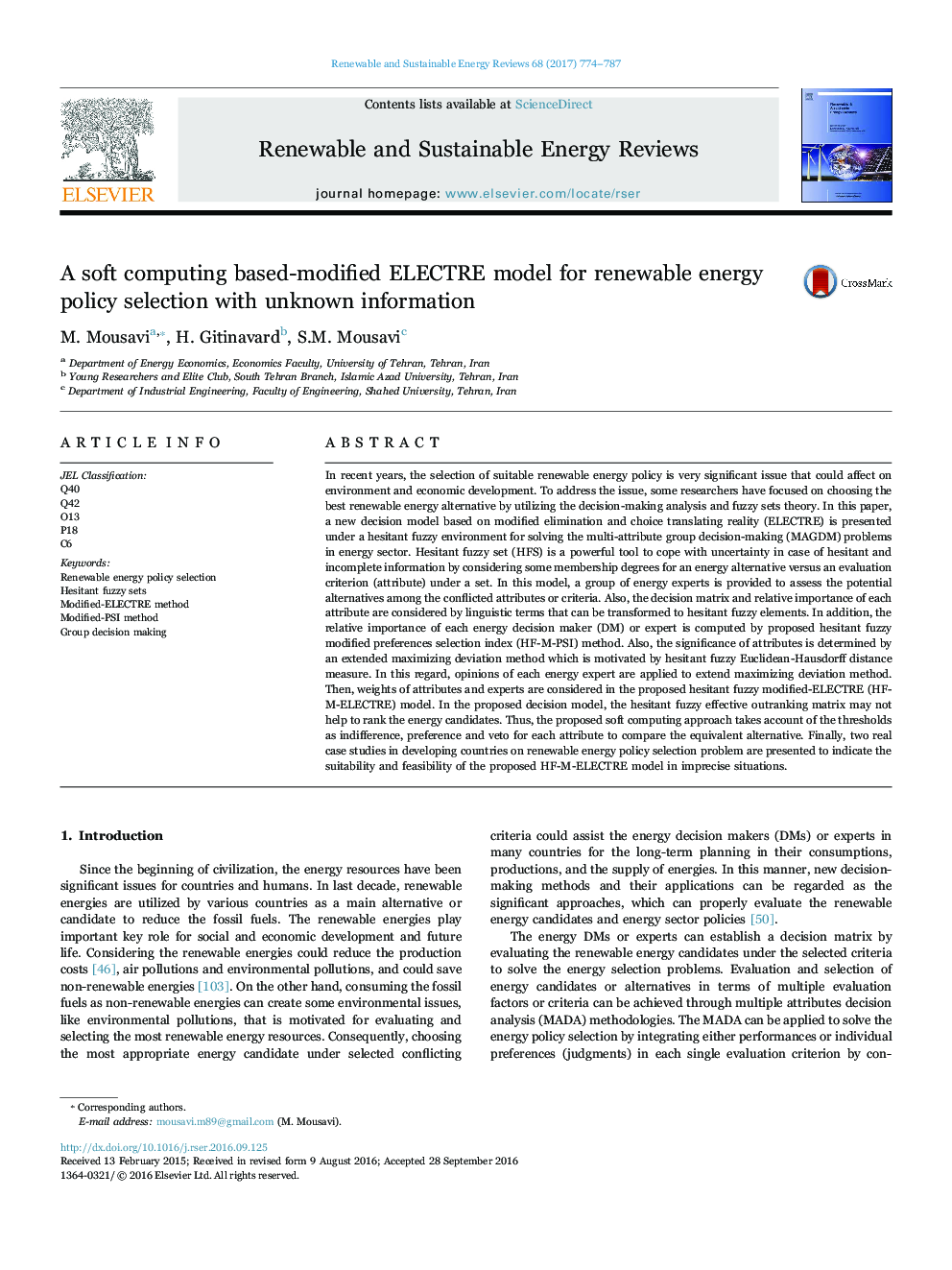| Article ID | Journal | Published Year | Pages | File Type |
|---|---|---|---|---|
| 5482706 | Renewable and Sustainable Energy Reviews | 2017 | 14 Pages |
Abstract
In recent years, the selection of suitable renewable energy policy is very significant issue that could affect on environment and economic development. To address the issue, some researchers have focused on choosing the best renewable energy alternative by utilizing the decision-making analysis and fuzzy sets theory. In this paper, a new decision model based on modified elimination and choice translating reality (ELECTRE) is presented under a hesitant fuzzy environment for solving the multi-attribute group decision-making (MAGDM) problems in energy sector. Hesitant fuzzy set (HFS) is a powerful tool to cope with uncertainty in case of hesitant and incomplete information by considering some membership degrees for an energy alternative versus an evaluation criterion (attribute) under a set. In this model, a group of energy experts is provided to assess the potential alternatives among the conflicted attributes or criteria. Also, the decision matrix and relative importance of each attribute are considered by linguistic terms that can be transformed to hesitant fuzzy elements. In addition, the relative importance of each energy decision maker (DM) or expert is computed by proposed hesitant fuzzy modified preferences selection index (HF-M-PSI) method. Also, the significance of attributes is determined by an extended maximizing deviation method which is motivated by hesitant fuzzy Euclidean-Hausdorff distance measure. In this regard, opinions of each energy expert are applied to extend maximizing deviation method. Then, weights of attributes and experts are considered in the proposed hesitant fuzzy modified-ELECTRE (HF-M-ELECTRE) model. In the proposed decision model, the hesitant fuzzy effective outranking matrix may not help to rank the energy candidates. Thus, the proposed soft computing approach takes account of the thresholds as indifference, preference and veto for each attribute to compare the equivalent alternative. Finally, two real case studies in developing countries on renewable energy policy selection problem are presented to indicate the suitability and feasibility of the proposed HF-M-ELECTRE model in imprecise situations.
Related Topics
Physical Sciences and Engineering
Energy
Renewable Energy, Sustainability and the Environment
Authors
M. Mousavi, H. Gitinavard, S.M. Mousavi,
